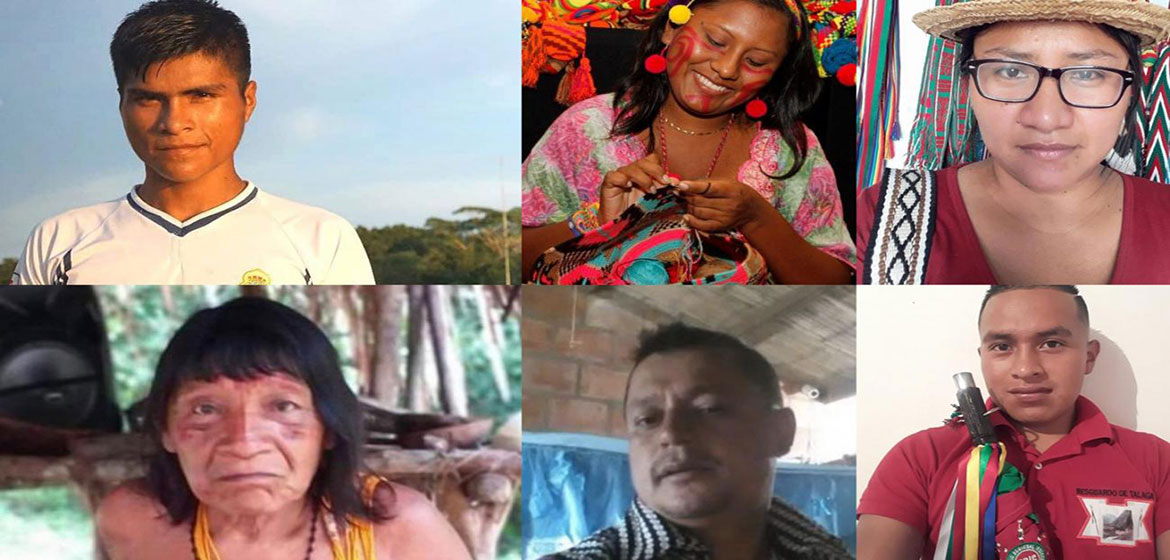As we enter 2020, Cultural Survival remembers 28 courageous Indigenous human rights and environmental defenders who were murdered in 2019 in the Latin American countries where we do our work. We invite you to take a moment to learn about and support the human rights and environmental defense work being carried out by these individuals that likely led to their targeting.
Attacks against Indigenous human rights defenders have shown an alarming surge over the past three years. UN Special Rapporteur Vicky Tauli Corpuz has called this trend a “global crisis," denouncing persistent impunity against those who commit these crimes. Of this list, only one of 28 murders have been investigated conclusively and perpetrators brought to justice.
We acknowledge that this list is not exhaustive. Due to marginalization and discrimination by authorities, unequal access to justice, language barriers, and the lack of coverage by mainstream media, there are many acts of violence against Indigenous Peoples around the world that go unreported.
Please join us in celebrating the legacies of these defenders who gave their lives in pursuit of a better world.
Óscar Cazorla (Zapotec) - MEXICO

Photo: Miho Hagino/Facebook
On February 9, 2019, Óscar Cazorla (62), in his home in Juchitán de Zaragoza, Oaxaca, Mexico. Cazorla was a Zapotec activist and an advocate for Muxe and LGBTQIA rights. He self-identified as Muxe, a non-binary third gender originating within Zapotec culture in the region of Istmo de Tehuantepec in Oaxaca, Mexico. Muxes live throughout the Istmo de Tehuantepec region, however, Juchitán is historically regarded as a safe haven for Muxe culture and self-expression. However, while Muxes are both inherent and revered members of Zapotec culture, they still confront nonacceptance and persecution from those opposed to gender diversity and nonconformity to a binary structure of gender. Óscar Cazorla fought to maintain and and raise awareness of Muxe culture. He was a founding member of or “The Authentic Intrepid Seekers of Danger,” a Muxe-run group created in 1976 to foster solidarity amongst the Muxe community and celebrate sexual diversity. As an Indigenous person, a human rights activist, and member of the LGBTQIA community, Óscar Cazorla existed in an intersection of targeted identities. Indigenous Peoples, human rights activists, environmental defenders, and members of the LGBTQIA community remain targets of hate crime both within Mexico and throughout the globe. In , supporters and relatives of Óscar continued demanding that the Fiscalía General de Justicia del Estado de Oaxaca (FGJEO) bring Cazorla’s death justice, but the murder remains unresolved.
Saturnino Ramírez Interiano (Maya Ch’orti’) Guatemala
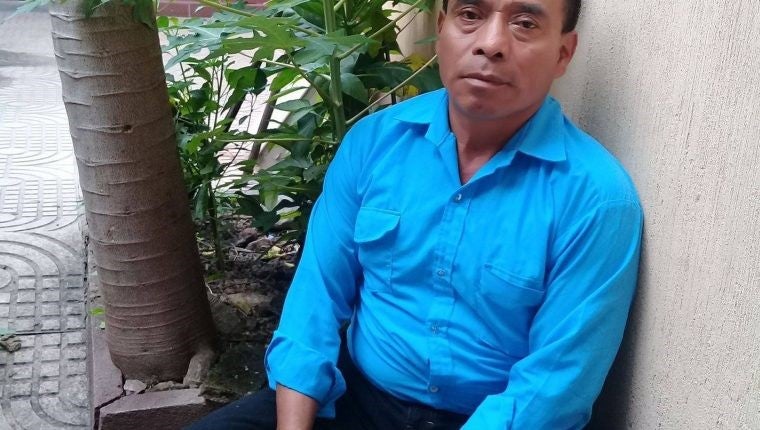
Photo:
Maya Ch'orti' linguist Saturnino Ramírez Interiano in Chiquimula, Guatemala on February 13, 2019. He was a linguist, educator, and active proponent of the history and culture of the Indigenous Ch’orti’ Peoples. Saturnino Ramírez Interiano worked for over 10 years as a director at the Academy of Mayan Languages of Guatemala in Chiquimula, Guatemala. The Ch’orti’ are an Indigenous Peoples that reside in the Chiquimula and Zacapa departments of Guatemala and in bordering communities in Honduras. They have suffered from a of colonization, persecution, land loss, and political discrimination. As an advocate for Ch’orti’ culture, Saturnino Ramírez Interiano frequently traveled throughout the Ch’orti’ region to teach classes on the Ch’orti’ language and history. A colleague and professor at the Academy, , declared: “We worked together for a long time, committed to the rescue of the Chortí language and culture. He always fought so that the community leaders of the region would not let this valuable ancestral tool – one which identifies us – die. We were great companions and his death hurts me. The Chortí region is in mourning.” Ramírez Interanio’s death continues to shake his community. Police have failed to make progress in investigating the crime.
Sergio Rojas (Bribri)- COSTA RICA
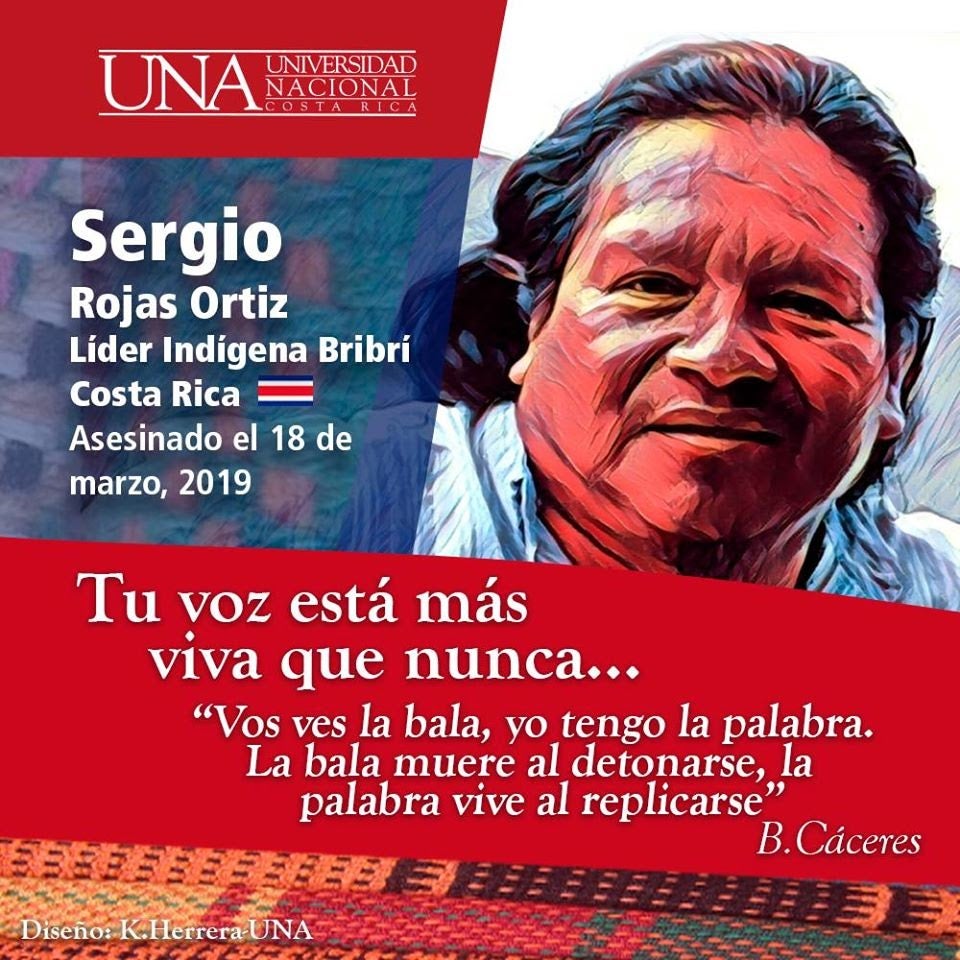
Photo:
On the evening of March 18, 2019, Indigenous leader was assassinated in his residence in Salitre de Buenos Aires, part of the Puntarenas province, after being shot multiple times. Rojas was a member of the Uniwak clan, part of the Bribri community, one of the eight Indigenous Peoples that are recognized in Costa Rica. A well-known Indigenous leader in the region, Rojas Ortiz was a member of the National Front of Indigenous Peoples (Frente Nacional de Pueblos Indígenas - FRENAPI), the Council for the Defenders of Mother Earth (Autoridades Propias Defensoras de la Madre Tierra), and the Association for the Development of the Salitre People (Asociación para el Desarrollo del Pueblo de Salitre). He worked tirelessly to implement Indigenous land rights in Costa Rica, advocating for the removal of unauthorized settlers on Indigenous-titled lands. The crime occurred only hours after Rojas Ortiz, along with two neighbors, went that members of the Salitre community had received regarding a land dispute over Indigenous territories. After the murder, Costa Rican president Carlos Alvarado Quesada the crime, stating: “A tragic day for the Bribri People, for all our Indigenous communities, and for all of Costa Rica.” Costa Rica has created a in order to pursue the crime, but aside from releasing a sketch of two suspects, work being carried out by this unit, if any, has been kept tightly under wraps and as of July 2019 no recent news has been released.
In October 2018, Cultural Survival submitted a report on human rights violations against Indigenous Peoples in Costa Rica to the UN Human Rights Council via , which specifically urged authorities to improve security measures for the people of Salitre, Rojas’ home village. Five months after submitting this report, Sergio Rojas was killed. This prompted Cultural Survival to take further action; in April 2019, attended the United Nations Permanent Forum on Indigenous Issues and met with the Permanent Mission of Costa Rica to the UN to urge for immediate investigations into the asassination of Sergio Rojas inquire on progress to secure Indigenous territorial autonomy.
Cristian Javá Ríos (Urarina), PERU
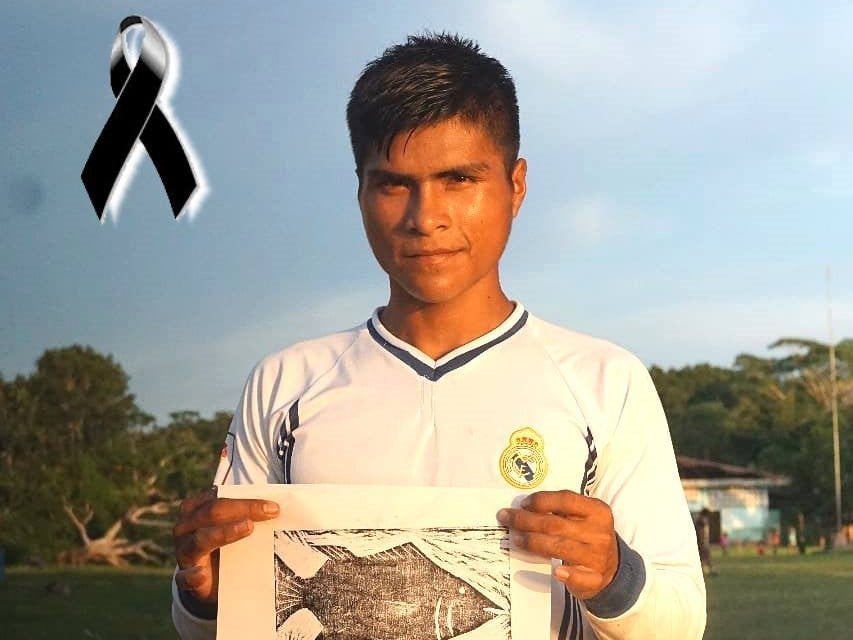
Photo:
On April 17, 2019, in the Peruvian Amazon, Cristian Javá Ríos (20) For years, Peru’s northern Amazon has been subjected to oil spills and the releasing of billions of barrels of toxic waste, at the hands of Argentinian Pluspetrol and the China National Petroleum Corporation. The Urarina along with other Indigenous Peoples of the Peruvian Amazon are constantly under due to these degrading oil activities, which have caused health epidemics, pollution, economic dependency and land violations, including the destruction of forests and spiritual sites. Javá Ríos fought adamantly to defend his land, despite unstable and precarious circumstances. There is a continued need to mitigate violence and aggression in this region, which harm the lives of Indigenous Peoples, their environment, and their surrounding ecology. Those accused of murdering Javá Ríos and injuring other members of the community were reported to authorities, but no further investigation has unfolded. Soon after Javá Ríos’ murder, however, the Ministry of Justice and Human Rights in Peru passed , but it is one of many steps remaining to be taken in order to guarantee safety of Indigenous Peoples in Peru.
José Alfredo Hernandez (Nahuat Pipil) - EL SALVADOR
José Alfredo Hernandez was in the service of protecting his sister-in-law, Indigenous activist Margot Perez.
Reports reveal that the military police in Nahuizalco harassed Alfredo Hernandez after Perez fled her community of Nahuizalco with threats against her life. When he did not submit to police – blackmailing him to reveal Margot’s whereabouts – Alfredo Hernandez was shot five times allegedly by military police and died immediately after, on May 3, 2019. His legacy is the continued human rights work that his sister-in-law has been able to dedicate her life to, including the promotion of the right to Free, Prior and Informed Consent in Indigenous communities, the implementation of the United Nations Declaration on the Rights of Indigenous Peoples. She also has urged the El Salvadoran government to halt criminal organizations that have flourished unchecked while detrimentally impacting Indigenous youth and their academic, social, and physical potential. As the president of the (Consejo de Pueblos Originarios Nahuat Pipil de Nahuizalco), Margot Perez’s courageous advocacy has continued to put her life in jeopardy. An, written by the The Union of BC Indian Chiefs and addressed to the Office of the United Nations High Commissioner for Human Rights, demanded justice and expressed solidarity for the people of El Salvador: Alfredo Hernandez’s death remains unsolved and Margot Perez is still in hiding.
Otilia Martínez Cruz and Gregorio Chaparro Cruz (Rarámuri) - MEXICO
On the outskirts of Chihuahua and Sinaloa, Mexico, Otilia Martínez Cruz (60) and her son Gregorio Chaparro Cruz (20) were , 2019. The mother and son, belonging to the Rarámuri Indigenous Peoples, resonated with their community as powerful defenders of surrounding forests and advocates for environmental justice. Additionally, they were relatives of, an Indigenous leader and protector of the Coloradas de la Virgen Forest located in Chihuahua, Mexico. Despite being protected under the Federal Mechanism for the Protection of Journalists and Human Rights Defenders, Carrillo Martínez was killed in October 2018 by illegal loggers. Speculations pertaining to the motive behind the recent murders of Otilia Martínez Cruz and Gregorio Chaparro Cruz believe their relationship to Julián Carrillo Martínez is a fundamental component. According to investigations, three gunmen affiliated with a criminal group “Los Chorohuis” broke into the home and and fatally inflicted both mother and son with. A witness recognized one alleged murderer, , but no updates have been released ascertaining the whereabouts nor convictions of the suspects.
José Lucio Bartolo Faustino and Modesto Verales Sebastián (Nahua) MEXICO
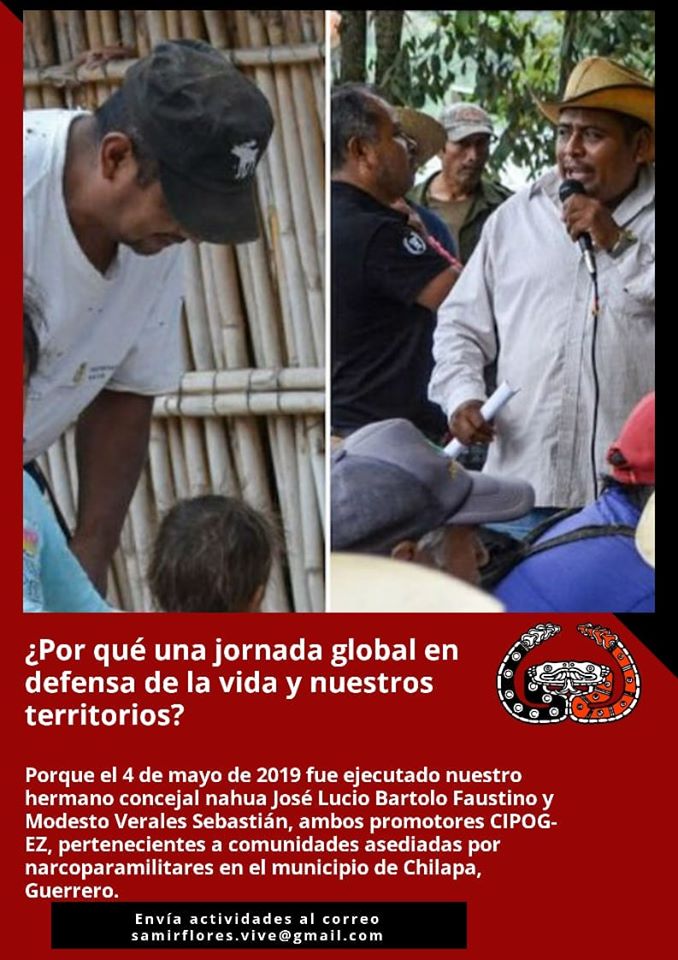
Photo:
On May 4,2019, both José Lucio Bartolo Faustino and Modesto Verales Sebstián had attended a meeting with other members of the (CIPOG-EZ), a partner organization under the National Indigenous Congress and Indigenous Governing Council. On their way back home from the meeting in Chilpancingo, Guerrero, . These criminal groups are protected under complicit arms of the Mexican government’s marital and police authorities, which inevitably delays measures seeking justice. For years, community members of these two victims have strived to develop their own to denounce the criminal groups backed by Mexican authorities, but their rights are continuously repressed and disregarded. Bartolo Faustino and Verales Sebastián were well-known participants in the Indigenous Council, defenders of Indigenous territories, cultures, and pivotal advocates for their Nahua and Mixtec autonomy. Their murder remains unsolved; the National Indigenous Congress, Indigenous Governing Council, and Zapatista Army for National Liberation the injustice and demand that the government be held accountable.
Leonel Díaz Urbano (Nahua), MEXICO
The fatal shooting of Nahua leader Leonel Díaz Urbano took place on May 9, 2019, while he was sleeping in his home, located in the municipality of Zacapoaxtla in the state of Puebla, Mexico. Días Urbano protested the continued construction of a hydroelectric plant in Zacapoaxtla. Run by the , backed by governmental actors Semarnat (Mexico’s environmental agency) and the Federal Commision of Energy (CFE), conflicts have existed for years near the Apulco River. For decades, there was a relentless struggle between the Nahua community and Gaya plant; Gaya was its construction plans in 2016, but the legitimacy of its compliance remain in question and the well-being of Indigenous communities are forever damaged. Many of its projects had already led to irreversible, environmental destruction while diverting the riverbed off course. A few political activists have expressed their grievances for Díaz Urbano. , a candidate for a local government position, declared shortly after his murder that “” Enrique Cárdenas lost the to Luis Miguel Barbosa, but remains a powerful voice within his community. Meanwhile, Díaz Urbano’s murder remains unsolved.
Daniel Rojas (Nasa) COLOMBIA
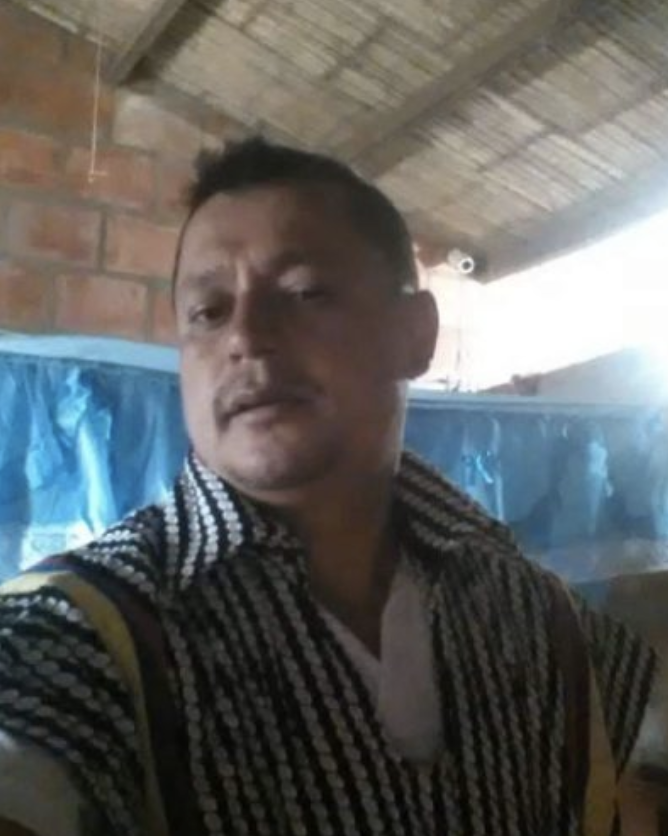
Photo:
North of Cauca, Colombia, the president of the Junta de Acción Comunal (JAC) in Caloto, Daniel Rojas (40), was on May 14, 2019. He was a prominent member of the Indigenous Guard of López Adentro in Caloto, remembered for his defense of Indigenous land and agricultural rights. He also encouraged , particularly soccer, among his community’s youth to help unify his neighbors through sport and culture. Those responsible for the murder fled afterwards and no further details have been released pertinent to the fugitives’ escape. However, members of the Nasa community are still seeking answers, and the stated that the Colombian government’s inaction is one of the primary reasons for the murder: the situation has occurred within a systematic pattern of threats and attacks against social and Indigenous leaders throughout Colombia.
Jorge Juc Cucul (Q'eqchi' Maya) - GUATEMALA
Jorge Juc Cucul was a respected elder and of a local chapter of the organization Campesino Development Committee or Comité de Desarrollo Campesino (CODECA) in Paracaidista de Livingston, Izabal. He was attacked with a machete by an unknown man on his property near his home, alongside his eight-year-old son. , Juc Cucul was a frontrunner behind efforts to defend Indigenous territories and campesino livelihoods, nationalize electrical energy, respect Mother Earth, and criticize the policies and corruption within the administration of Guatemalan President Jimmy Morales. Juc Cucul’s murder remains unsolved, as well as other assassinations of Committee members. His death was of CODECA members during 2019, an upsurge from 6 in 2018, which had prompted Victoria Tauli-Corpuz, the United Nations Special Rapporteur on the rights of Indigenous Peoples, to the murders in a 2018 Washington Post op-ed. The startling, increased death toll in 2019 revitalizes the need to bring further attention to the violent and corrupt acts that target Indigenous Peoples.
Emyra Wajãpi (Wajãpi) - BRAZIL
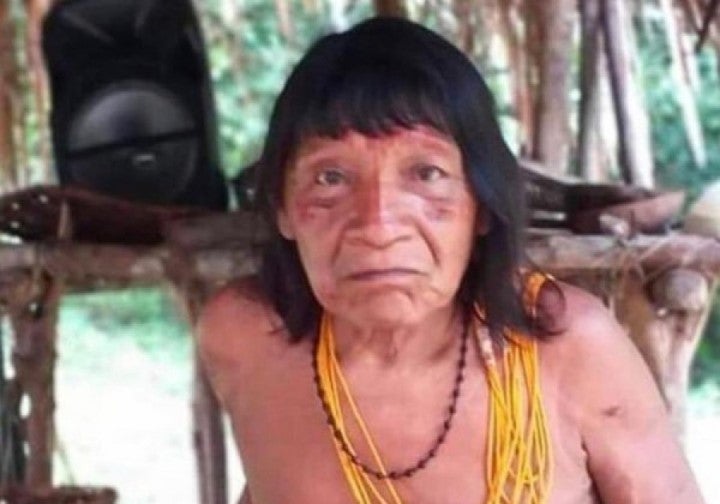
Photo:
A leader of the Wajãpi tribe, Emyra Wajãpi was , 2019, in his Brazilian village. Community members reported that a few dozen armed goldminers, dressed in military fatigues, had raided their village, threatening and aggressively intruding upon Wajãpi People and homes. Reports from villagers assert that Emyra Wajãpi was stabbed in the adjacent woods near his village, and then his corpse was thrown into a river. Community members, meanwhile, managed to escape to nearby villages and called for help from federal police. Emyra Wajãpi’s death epitomizes the inhumane, prejudicial treatment of Indigenous Peoples under Brazilian President Bolsonaro, and has rallied many Indigenous rights defenders to further demand change. President Bolsonaro launched his political platform claiming that Indigenous People . To this day, police forces and federal agencies designated to protect Indigenous rights have failed to ascertain more information about Emyra Wajãpi’s murder. Land invasions in Indigenous villages have skyrocketed under Bolsonaro’s administration, at the hands of miners, loggers and farmers. Emyra Wajãpi’s murder sheds light on the increasing numbers of killed Indigenous leaders in the Brazilian amazon, which has escalated to a record high in 2019: 10 Indigenous People were murdered, the highest amount in two decades. Their murders composed a dramatic increase from 7% in 2018. Even more devastating, ; many of those responsible for the crimes were part of illegal logging and deforestation activities.
Kevin Mestizo Coicué and Eugenio Tenorio (Nasa) - COLOMBIA
In the Indigenous region of Cauca, in the southwest of Colombia, two Indigenous guards were murdered on August 10, 2019, amidst rising violence and instability. Kevin Mestizo Coicué and Eugenio Tenorio served as pivotal Nasa community members. Members of the Indigenous Guard denounced the bloodshed, : “We condemn an act so low, executed by an armed group against these life guardians who have defended the territory with their batons.” According to a statement, the attack occurred when the two guards accompanied participants in a coffee fair in Cauca. As they boarded a bus to the fair, all were ambushed, killing Mestizo Coicué and Tenorio while wounding four others. The murderers are linked to one of many armed, illegal narco-trafficking groups that have crippled the region with death and have long yet unjustly enjoyed impunity.
Cristina Bautista - (Nasa) - COLOMBIA

Photo: Cristina Bautista/ Facebook
Ne’h Wesx Authority and of the Nasa Tacueyo Indigenous Reserve – Asdrúbal Cayapu Kiwe Thegna, Eliodoro Finscue, José Gerardo Soto, and James Wilfredo Soto – were killed; five other members were wounded during a targeted attack on October 29, 2019. According to , a black vehicle with armed members of the FARC dissident group "Dagoberto Ramos" on Cristina Bautista and other guards after plowing through a barricade the community had set up to protect their territory. Bautista was a traditional leader, social worker, land defender and Indigenous rights activist. She was also a 2017 Indigenous Fellow of the Office of the High Commission for Human Rights in Geneva, Switzerland. On August 13, she was filmed making the following speech in Toribio, Resguardo San Francisco, Cauca, in which she denounced previous murders of Indigenous guards. She : "If we stay quiet, they kill us, and if we speak, they kill us too. So, we speak.” Her murder marked the seventh Indigenous traditional authority who was been assassinated in Cauca in the month of October 2019 alone. Indigenous organizations in Colombia, including the Regional Indigenous Council of Colombia () have been urgently demanding response to this incessant wave of violence, which they have labelled a genocide. These demands, however, remain unmet by Colombian authorities; Bautista’s murder and other casualties are yet to be solved. Her legacy, meanwhile, remains alive, and Bautista was commemorated as .
Juan Francisco Luna Álvarez (Zenú) - COLOMBIA
On August 8, 2019, Juan Fransisco Luna Álvarez (60) was near his rural home in the municipality of San José de Uré, Colombia. Authorities, based on the accounts of some witnessesses, believe the killers are members of , an infamous criminal group of the region with ties to drug trafficking. There is a withstanding reward for anyone who has information on the whereabouts of those responsible for the crime, but no recent updates have been released. Luna Álvarez was campesino farmer and member of the Indigenous Guard of Zenú del Alto San Jorge. Following his murder, Luna Álvarez’s house was and his family was forced to flee. A few days after the event, authorities of the San José de Uré municipality convened to discuss additional measures that could mitigate the growing violence against Indigenous Peoples and campesinos in the region. Fransisco Luna’s case remains unresolved, and his family still lives in fear of further retaliation.
Abraham Domicó (Embera) - COLOMBIA
An Indigenous member of the Embera Eyábida community, in Tarazá, Colombia, Abraham Domicó was shot and in his home on August 14, 2019, while his wife and children were also inside. The family was ambushed by armed men; despite attempts to revive Abraham, he was pronounced dead before arriving to the local hospital. Domicó (30), was devoted to agricultural practices and justice, a valued member of his community, and a loving father of four. Ever since an between the Colombian government and its once-largest rebel group, FARC-EP, there has been a resurgence of violence among Indigenous communities in Colombia. Following Domicó’s death, The(Organización Indígena de Antioquia) has called on the United Nations, as well as other national and international human rights defenders, to prevent the escalation of armed conflict. Friends and family of Domicó still await answers.
Mirna Suazo (Garifuna) - HONDURAS
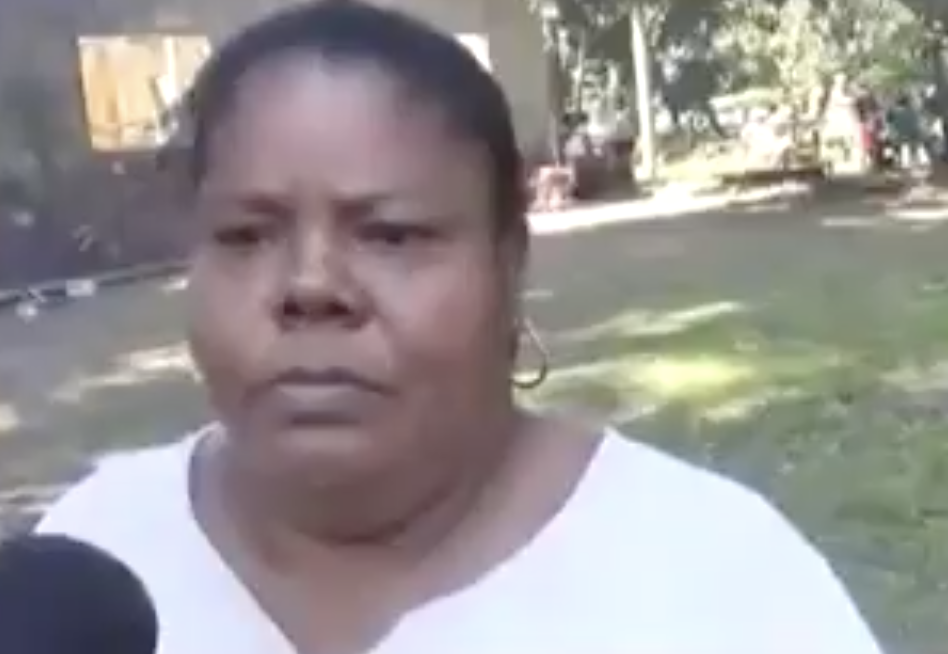
Photo:
Mirna Suazo, president of the Masca Board of Trustees in Honduras, was inside her restaurant, “Champa Los Gemelos,” when two hitmen disembarked their motorcycles and repeatedly shot her on September 8, 2019. Suazo had already informed the police that she had received anonymous death threats, yet no further investigation nor protection was implemented. Suazo was one of four other victims of the Masca Community killed in September, many associated with land tenure and management. As president, she expressed her frustrations in a that reflects the corruption – both economic and political – that threatened her safety. In the video, she repeatedly asserts that while some of her colleagues are personally exploiting their town’s fiscal and environmental resources: “I am not working for personal gain, I am working for the community. We stay here and we keep fighting for this town.” She adamantly rejected the installations of two hydroelectric plants on the Masca river, both of which were included in and sponsored by the United Nations . Her death has heightened calls for justice, especially by the Honduran Black Fraternal Organization (Organización Fraternal Negra Hondureña, ) which reminds both the national and international community that in Honduras there has been unstoppable waves of violence and homicides in recent years, but 92% of criminal cases remain in impunity. Suazo’s case is one of them.
Paulina Cruz Ruiz (Maya Achi) - GUATEMALA
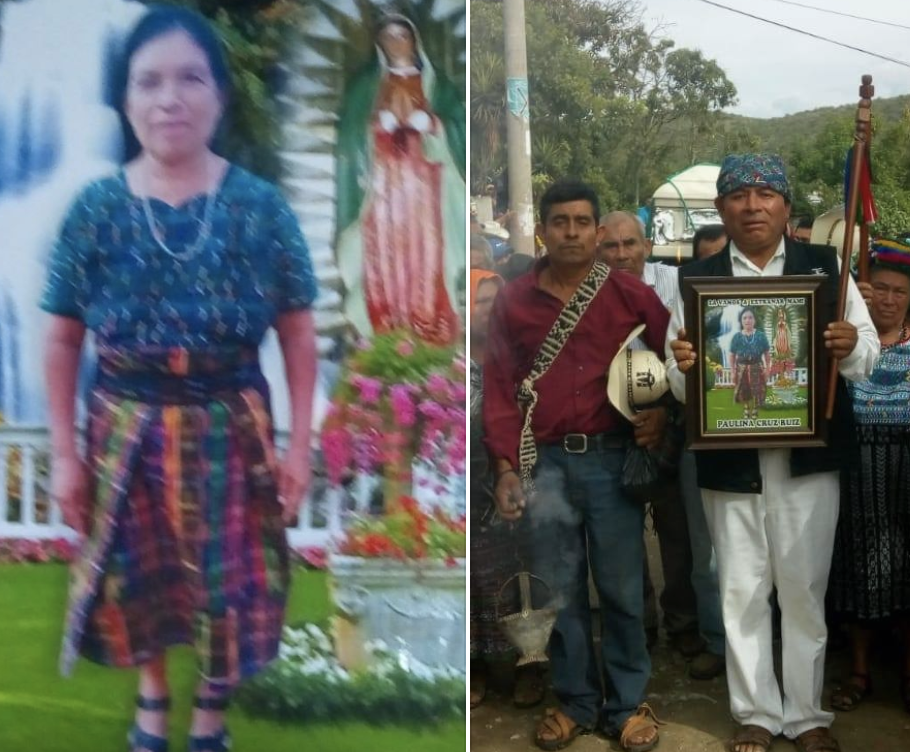
Paulina Cruz Ruiz (58), member of the Autoridad Ancestral de Maya Achi from Rabinal, Baja Verapaz, Guatemala on September 14, 2019. Her husband was also wounded and spent time in the hospital. Cruz Ruiz was an active organizer in her community, especially for the “March for Dignity” which took place a year prior to her death. She was also dedicated to defending women’s rights. Alongside other members of the Autoridad Ancestral, Cruz Ruiz interposed legal action in opposition to threats to her community’s land. The Maya Achi People have long suffered from the environmental consequences of the , funded by the World Bank and the Inter-American Development bank and built by the Guatemalan government in 1985. Even years later, agreements to repair damages have stalled. In January 2014, the US Congress finally ordered the Banks to implement the Chixoy Reparations Plan of 2010, but improvements are slowly gaining traction and the Maya Achi lives will never be fully restored. After Cruz Ruiz’s recent death, her community called upon the Guatemalan government to expedite an investigation process that will not only bring Cruz Ruiz and her family justice, but will protect and guarantee the security of the Autoridad Ancestral. More specifically,, a nonprofit organization run entirely by the Latinx community, condemned the murder, : “Ancestral authorities are keepers of our traditional ways, Maya justice system, and ancestral knowledge and attacking them is a direct attack to the core of our peoples and existence. Attacking the women of our Nations is the murder of our future generations.” Hundreds of people attended Cruz Ruiz’s funeral, more than 50 of whom were Maya Achi authorities. According to the Public Prosecutor’s Office, less than a month later a coordinated effortof Cruz Ruiz and injury of her husband, but their names were not released.
Víctor Manuel Chanit Aguilar (Murui Muina) - COLOMBIA
The mayor and Indigenous leader of Murui Muina was by an armed group in his hometown, a rural area in the Colombian Amazon on September 26, 2019. Members of the Indigenous community of Bajo Aguas Negras Caqueta claim that the national army is responsible for the death. They blame the army for the murder because they found footprints from military boots near Víctor’s body, and located the body a mere 40 meters away from where military personnel were stationed. The mayor was forcibly kidnapped and later discovered lifeless in a field of banana crops, his facial features disfigured and bearing signs of torture. His death heightens the risk of the Indigenous community’s cultural and physical extinction, as calls for justice and protection pass unnoticed by Colombian authorities. The Coordinator of Human Rights and Peace of the National Organization of Indigenous Peoples of the Colombian Amazon (OPIAC) has denounced the murder and sent a formal complaint to the Colombian government, demanding for responsibility to be accepted and action to be taken. The Murui Munina (Huitoto) community, under a Constitutional Court Order, have been identified as an Indigenous group . Other Indigenous communities and are demanding the reopening of investigations to assure justice.
Marlon Ferney Pacho (Nasa) - COLOMBIA
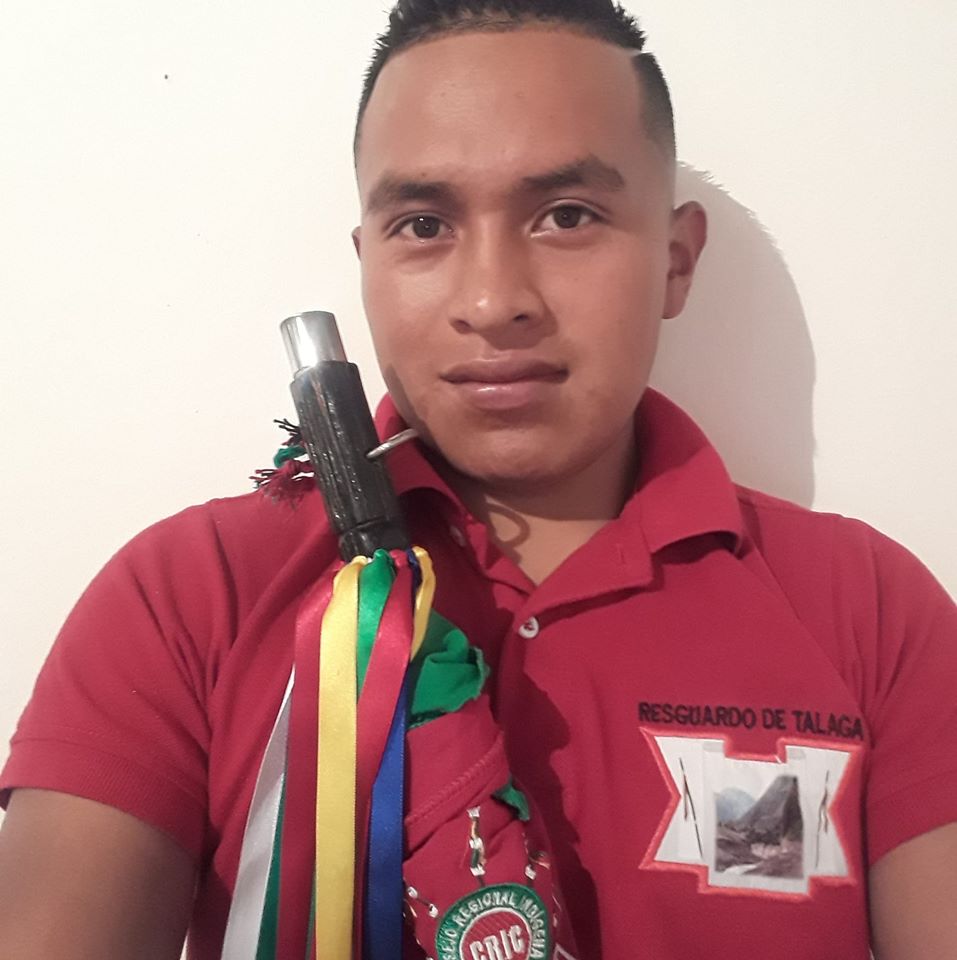
Photo:
At around 5 pm on September 26, 2019, Marlon Ferney Pacho, 24, was attacked by four armed strangers, who dragged him from his residence and. Ferney Pacho was a member of the Nasa community in Colombia. A member of the Consejo Regional Indígena del Cauca (), Ferney Pacho had many companions that are now denouncing the government’s complacency with armed violence, and are reaching out to both local and regional levels of government for immediate action. The Consejo denounced the murder, that its community will “continue to make united efforts in order to defend the lives and land of each and every one of us...our territory nor our people are instruments for the social conflict that unfolds in the current colombian climate.” The Indigenous Guard embarked upon investigations to track down those responsible for the murder, but no leads nor arrests have surfaced.
Milgen Idán Soto Ávila (Tolupán) - HONDURAS
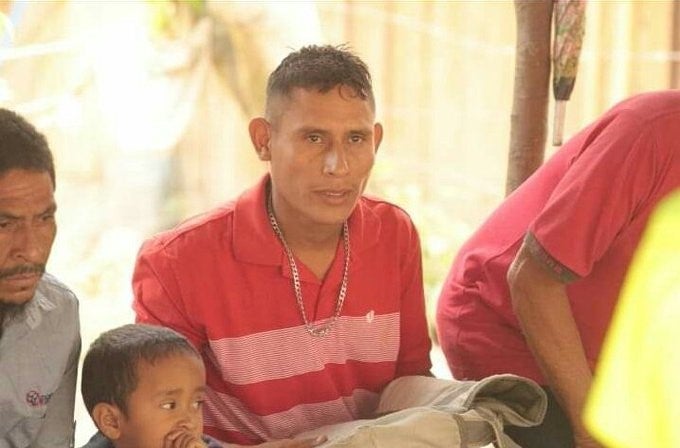
Photo:
Milgen Idán Soto Ávilia (29), had been a long-time fighter to protect the forests in the Yoro mountains of Honduras, despite animosity and pushback from commercial logging companies. He was declared missing by neighbors on September 23, 2019, and . Soto Ávila was an Indigenous Tolupán leader from Honduras, and a recent member of the Broad Movement for Dignity and Justice (Movimiento Amplio por la Dignidad y la Justicia, ). Leading up to his death, the MADJ director stated that Soto Ávila received threats from a logging company named INMARE after he led a movement against its exploitative motives in tribal areas. MADJ holds INMARE responsible for his murder. His death epitomizes the heightened tension between the Indigenous community and INMARE. In past years, many of Soto Ávilia’s associates had been arrested for their environmental activism, which placed Soto Avilia before he was killed. Earlier, in February 2019, two of Soto Ávilia’s relatives were murdered, also known members of the movements defending Indigenous land. A statement from MADJ : “Soto Avilia was one of the Indigenous People that criticized the impunity in his relatives’ crimes...two other Indigenous People assassinated and whose murderers remain in total impunity.”
Dumar Mestizo (Nasa) - COLOMBIA
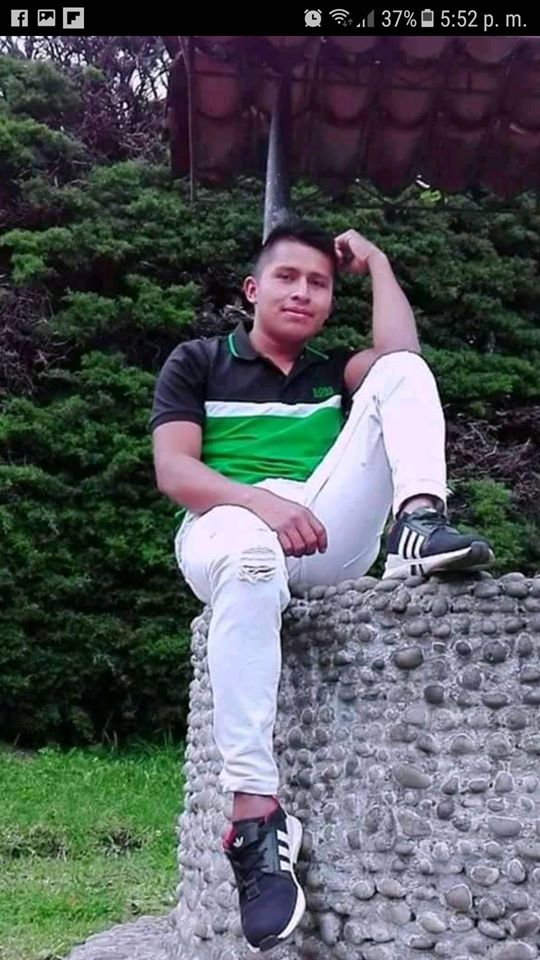
Photo:
On October 4, 2019, in the rural area of Toribío, Cauca, Colombia was assassinated. Dumar Mestizo (24), an artist and an art teacher at the program Youth Guard of Jambaló, (Jóvenes del Resguardo de Jambaló) was killed when men on motorcycles attacked and shot him. No recent updates pertinent to those responsible for the murder have been released. Dumar was an integral member of the Youth Movement Álvaro Ulcúe, an organization founded in 1980 whose mission is to educate Indigenous communities about different art forms. Mestizo was a muralist, and used his art as a form of expression for peace and resistance. A was painted to commemorate Mestizo’s life. In 2009, Dumar’s father, Indigenous Nasa leader Marino Mestizo, had also been murdered in Cauca. The North Cauca Indigenous Association both murders: “we hold responsible the Colombian government for showing total indifference to the incidents of genocide facing Indigenous People.” A neighbor remembered Mestizo as an always-smiling boy who was drawn to art at a young age, as a form of self-expression and identity. As he grew older, Mestizo’s art took on socio-political meaning and activism. For example, some of his murals was accompanied with such as these: “Podrán matarnos, pero nunca callarán nuestras voces” (They might kill us, but we will never quiet our voices). Dumar Mestizo’s death revives that crisis that many Indigenous Peoples are enduring in Cauca, which debilitates any peace-building or unity among communities.
Isaías Cantú Carrasco (Mè’phàà) - MEXICO
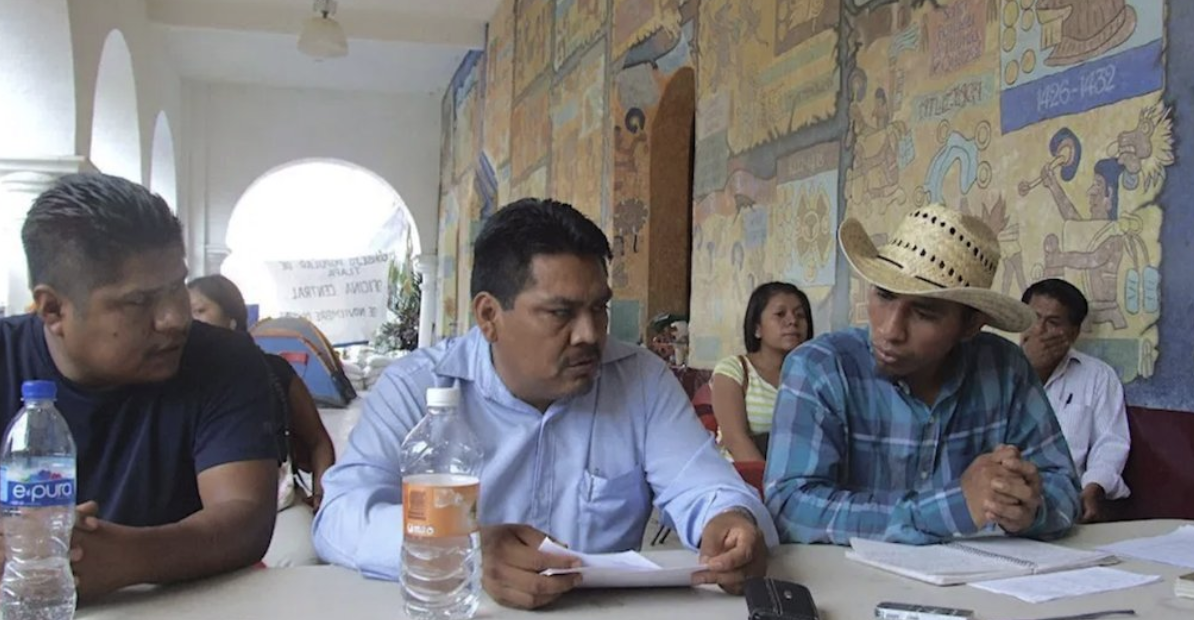
Photo:
As the president of the Commission of Public Goods of Paraje Montero, the president of the municipality of Malinaltepec, and a member of the Regional Council of Agrarian Authorities in Defense of the Territory (CRAADT), Cantú Carrasco was a prominent defender of Indigenous rights and environmental justice. Cantú Carrasco was with a firearm near the region’s police station on October 11, 2019, but regretfully no more information about the murder nor the culprits have been released. During the seven years prior to his murder, Cantú Carrasco ignited a fight against mining exploitation and the imposition of a Biosphere Reserve in the Mè’phàà Indigenous region, located in the Guerrero mountains., the Regional Council condemned the National Commission of Natural Protected Areas (CONAP) and its promotion of the Biosphere Reserve, stating on behalf of Me’phaa and other Indigenous communities: “it implies that the federal government takes control of our ancestral territories; subject us to regulations that are alien to our forms of community organization, prohibiting our traditional activities related to the use and enjoyment of our natural assets.” The press release also identified Casmin and Hochschild Mining as the companies behind the mining projects that are damaging Indigenous lands. The Mexican Network of those Affected by Mining, (Red Mexicana de Afectados por la Minería, REMA) Cantú Carrasco’s death and commemorated him for his tireless activism as a vocal defender and protector of his Indigenous Mè’phàà roots and traditions.
Oneida Epiayú (Wayúu) - COLOMBIA
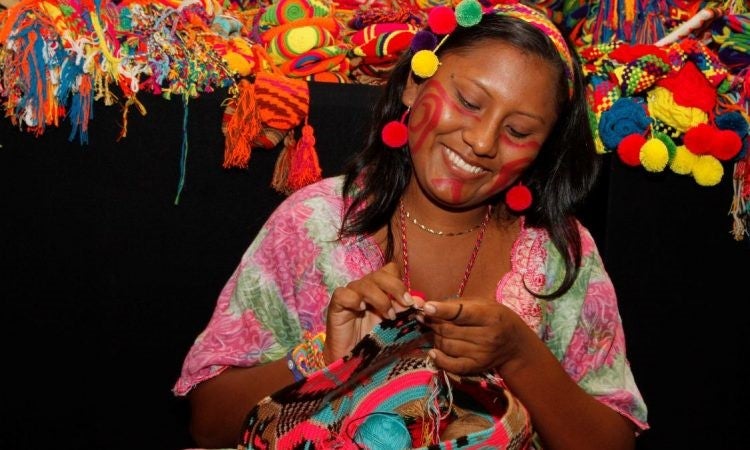
Photo source:
Oneida Epiayú, a leader in the Wayúu Community, was murdered in broad daylight on October 17, 2019, while eating lunch at a restaurant in Riohacha, Colombia. Two men entered the restaurant, still wearing their motorcycle helmets, to approach, shoot, and Epiayú. The attackers also gravely injured four other people, including her husband José González and a 12-year-old child. Epiayú was known for in certain food programs executed under the Colombian Family Welfare Institute (ICBF). However, it is unclear whether or not the asassination was intended for her or her husband, and further investigations have yet to be publicized.
Paulo Paulino Guajajara (Guajajara) - BRAZIL
The Indigenous Amazon Forest Guard Paulo Paulino Guajajara had, fatefully occurring on November 1, 2019, for being one of nearly 130 “guardians of the forest” or armed Indigenous sentinels. While fetching water with a fellow colleague, Laércio Souza Silva, Paulino Guajajara was shot in the neck by armed loggers and died in the forest, while his companion managed to escape. As an Amazon Guardian of Brazil, Paulino Guajajara was relentless in defending his eastern Amazon territory, despite threats and invasions by loggers. An acquaintance of Paulino Guajajara : “He knew that he might pay with his life, but he saw no alternative, as the authorities did nothing to protect the forest and uphold the rule of law.” Paulino Guajajara’s death is emblematic of the drastic Amazonian deforestation under Brazilian President Bolsonaro, with has destabilized thousands of Indigenous Peoples and their surrounding environment. Additionally, perpetrators of the violence have not been punished and Paulino Guajajara’s death has not received justice.
Jesús Eduardo Mestizo (Nasa) - COLOMBIA
Jesús Dumar Mestizo was attacked and[1] by strangers in the rural area of Toribío, located in Cauca Colombia, right outside of his home. In addition to his murder, there was an assassination attempt on the coordinator of the Indigenous guard of the Toribío village, Arbey Noscue, who managed to flee unharmed. Jesús’s death was registered as the homicide within a single week in the Cauca region of Colombia. Jesús Eduardo Mestizo was a of the Asociación Indígena Avelino Ui. The Association is also involved with the Proceso de Unidad Popular del Suroccidente Colombiano (PUPSOC) and the social organization and coordination of the Patriotic March (). Those responsible for Dumar Mestizo’s murder are still unknown.
Arnulfo Cerón Soriano (Nahua) - MEXICO
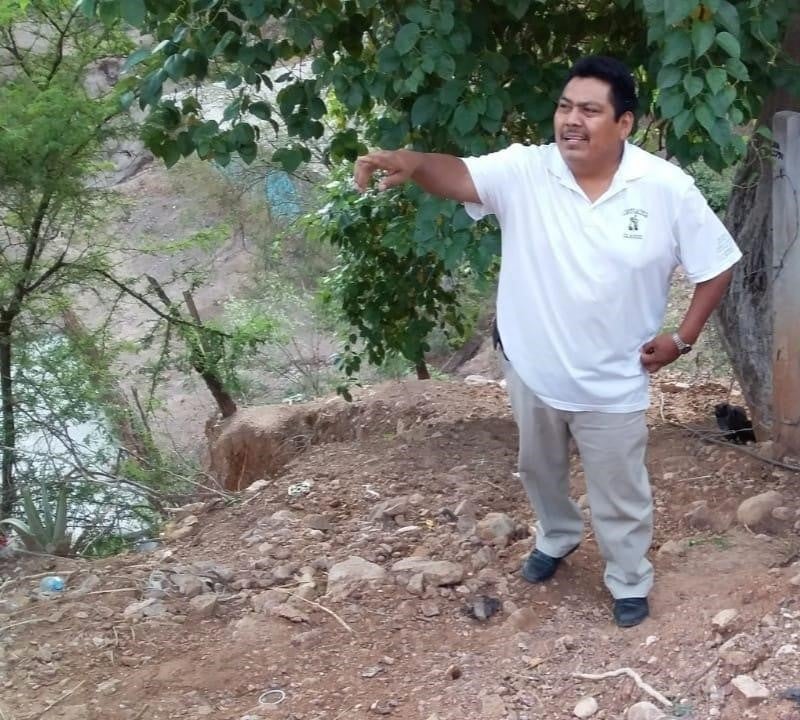
Photo:
After being declared missing for 40 days, the 47-year-old activist and lawyer was found along the Tlapa-Igualita highway, in the Mexican state of Guerrero. Arnulfo Cerón Soriano was a member of the Nahua Indigenous community, and a prominent social leader of the Frente Popular de la Montaña (). He was kidnapped by an armed group on the night of October 11, 2019, after leaving his house that night to attend an event which he failed to arrive at. During his social advocacy career, Cerón Soriano endured consistent smear campaigns and discrediting backlash but continued to fight alongside other human rights activists up until the end. He is remembered as an integral component to the dangerous yet necessary endeavors of the Frente Popular to Indigenous communities, collaborate with the , and defend his community. Cerón Soriano’s case has not been solved.
Catalino Barradas Santiago (Chatino) - MEXICO
On November 30, 2019, policemen from the Santo Reyes Nopala municipality in Oaxaca, Mexico Catalino Barradas Santiago (32), and injured two other individuals. Barradas Santiago belonged to the Chatino Indigenous community and was a notable human rights defender. He was travelling with other colleagues the night of the assassination. Testimonies from police who were involved in the murder defended their actions, stating that the travelers were proselytizing illegally which justified the policemen’s decision to pull them over and open fire on the victims. Some of the group were able to escape to the mountains; Barradas Santiago was the only reported fatality. Barradas Santiago’s murder occurred only days before the in the region, causing the election day – scheduled for December 1st – to be suspended. Despite the fact that Santos Reyes Nopala, Oaxaca municipality has a traditional, Chatino government, it is often corrupted by other external political leaders who indirectly control and organize overt force to suppress the rights of the Indigenous Chatino community. As a result, Barradas Santiago’s murder has mostly been ignored by authorities, who have not prioritized seeking justice for him.
Josué Bernardo Marcial Santos (Mixe-Popoluca) - MEXICO
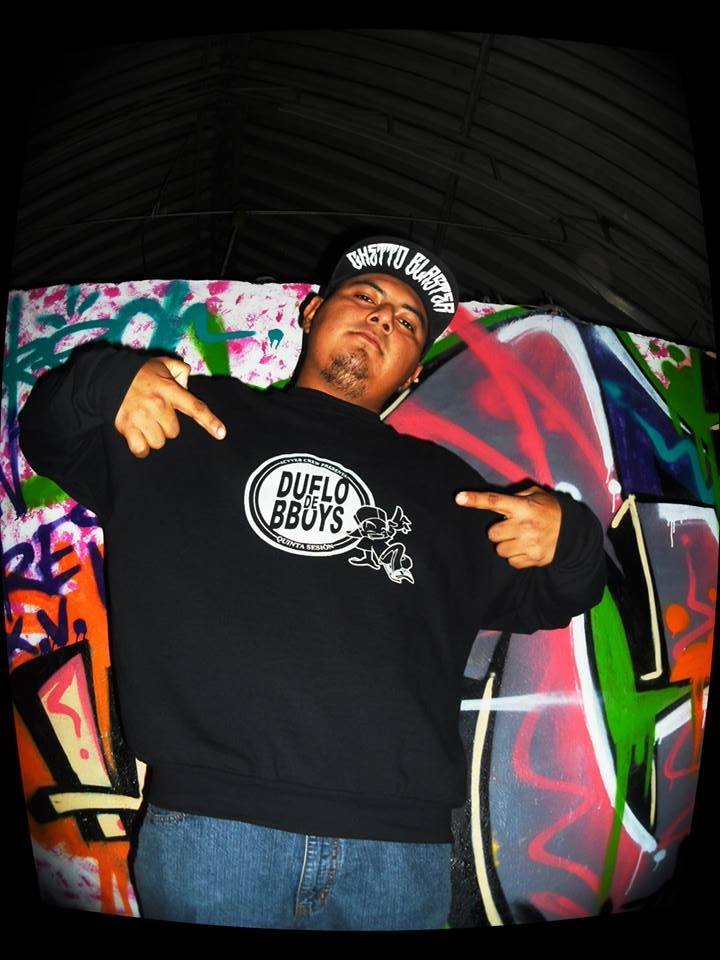
Photo:
Known as Tío Bad on stage, the rapper from the town of Sayula de Alemán in Veracruz, Mexico, was on December 19, 2019, after kidnappers demanded a ransom that was unmet. He used the power of musical and artistic expression to condemn the slow extinction of his native Mixe-Popoluca language, the murders of journalists, the narco-trafficking forces in Veracruz, and the exploitative fracking in his local area. He rapped in his native language of Sayulteca, one of many Indigenous languages in Mexico that has been threatened due to marginalization, migration of youth, and globalization. Not only did Tío Bad’s music revive the fading connections between older and younger generations, it vocalized and disseminated the many injustices and prejudices experienced by his Indigenous community across a diverse audience. He was also an engaged member of the Altepee Collective, a group that preserves and promotes traditional string music. His legacy remains indelible among his community, but those responsible for his death have not been found, let alone detained.
Source:
Related to SDG 16: Peace, justice and strong institutions and SDG 10: Reduced inequalities

